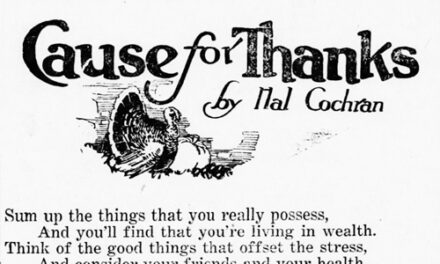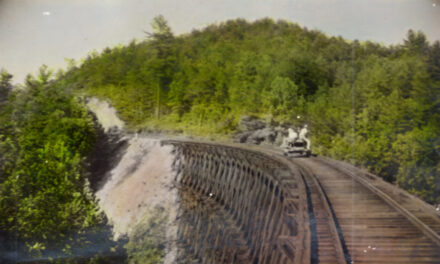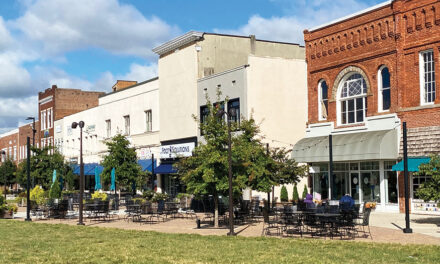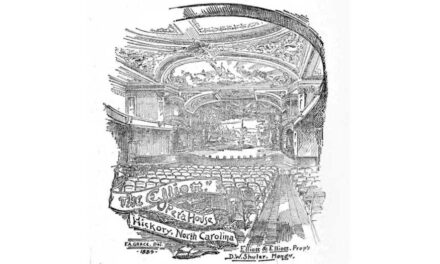
Last week, I dug up the first organized band to entertain Hickory. Like all groups, they broke up, but since, there have been lots of musical acts to fill the gap and wow audiences.
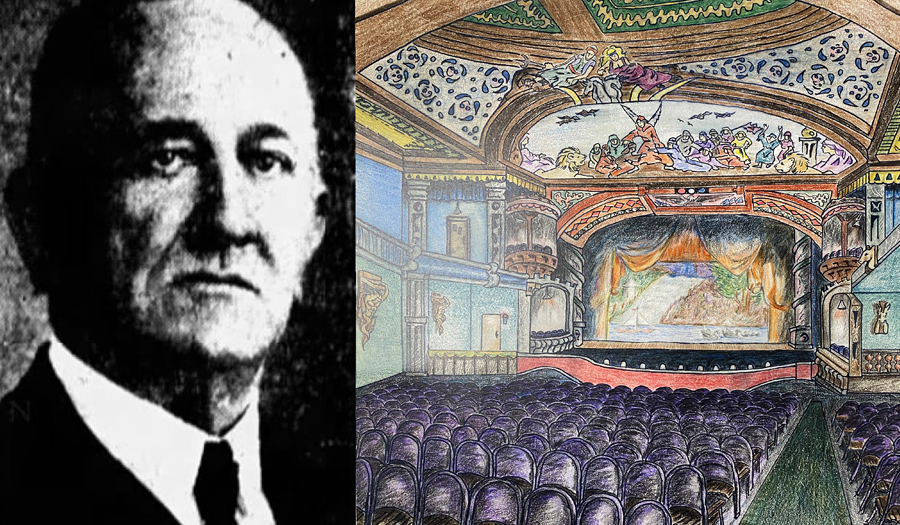 Sometime around 1902, a group from the remnants of the Hickory Military Opera Band formed the Southern Symphony Band. They quickly became a popular attraction, playing evening concerts, even marching in political campaigns and school openings.
Sometime around 1902, a group from the remnants of the Hickory Military Opera Band formed the Southern Symphony Band. They quickly became a popular attraction, playing evening concerts, even marching in political campaigns and school openings.
When the band debuted in Hickory, the local paper said, “We think that every citizen of Hickory feels an interest in every enterprise of this place and especially in this band.” They gloated over the idea that this new band “has given Hickory a reputation among musicians all over this and other states. Our new band promises to equal, if not surpass the old one and we should do all we can to encourage it.”
When they had a date Hickory, the railroad offered special rates to bring in an audience. During the summer, when vacationers were in town, the band performed in towns up and down the railroad line, including providing entertainment for a little event burgeoning in Newton, Soldier’s Reunion.
One night, prior to their first appearance in their hometown, the members of the band were scheduled at Hickory’s Elliott Opera House. The night before the date they rehearsed, leaving their instruments there. Unfortunately, that same night, the venue burned to the ground, with all the instruments and the sheet music of the band inside. Some went from calling them the Southern Symphony Band to the Southern Sympathy Band, due to their luck.
Undeterred, they regrouped. From time to time, vocalists joined them, like Miss Maud Forthman, a vocal teacher from Claremont College. At that show, reviews said the audience “greatly enjoyed” the event, adding “all who have ever had the pleasure of hearing this most excellent band will know what that means.” Wherever they played, they got excellent notices. They were called “superb,” “delightful,” and “an inspiration to enjoyment.”
Claremont Female College had its own music program. In fact, one of the few images from the college that existed on Salt Block Hill is of the Claremont College Music Club from 1897. The only person identified was the one not playing a horn. Nina Ramsay was photographed covering her ears. This band of women was something of an alternative to the Symphony Band, which was all men.
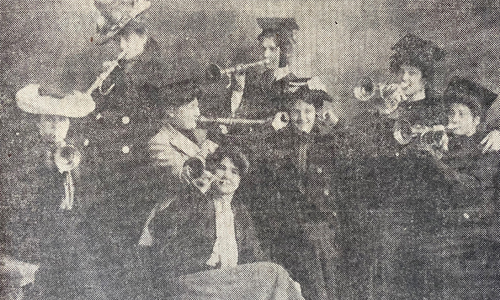 For more than a decade, the Southern Symphony Band entertained audiences, near and far. Once Huffman’s Academy of Music was established in Hickory, they played there often. One hint about the range of music they tackled indicated that “lovers of classical music as well as ragtime will not be disappointed.”
For more than a decade, the Southern Symphony Band entertained audiences, near and far. Once Huffman’s Academy of Music was established in Hickory, they played there often. One hint about the range of music they tackled indicated that “lovers of classical music as well as ragtime will not be disappointed.”
They were in demand. One night in 1913, a packed house brought in ticket sales of $113.35 ($3540 in today’s money). The Southern Symphony Band was at the height of its fame. By that point, Reverend J.E. Barb, a minister at both St. Paul’s Lutheran and Miller’s Lutheran, served as director of the band. He deftly employed singers like Miss Forthman and a men’s quartet to expand their sound and create excitement around each appearance.
Then in 1915, they called it quits. Publicly, no reason was given. The members just decided, like with all bands, that the chemistry that brought them together and the joy they shared in playing was no longer there. Since the instruments they played constituted a major investment, they settled up and each player took their own.
Was music performance dead in Hickory? Not by a long shot.
Photos: Rev. J.E. Barb, director of the Symphony Banda & a color interior of the Elliott Opera House (thanks Patrick Beaver Memorial Library). The Claremont College Music Club from 1897.


